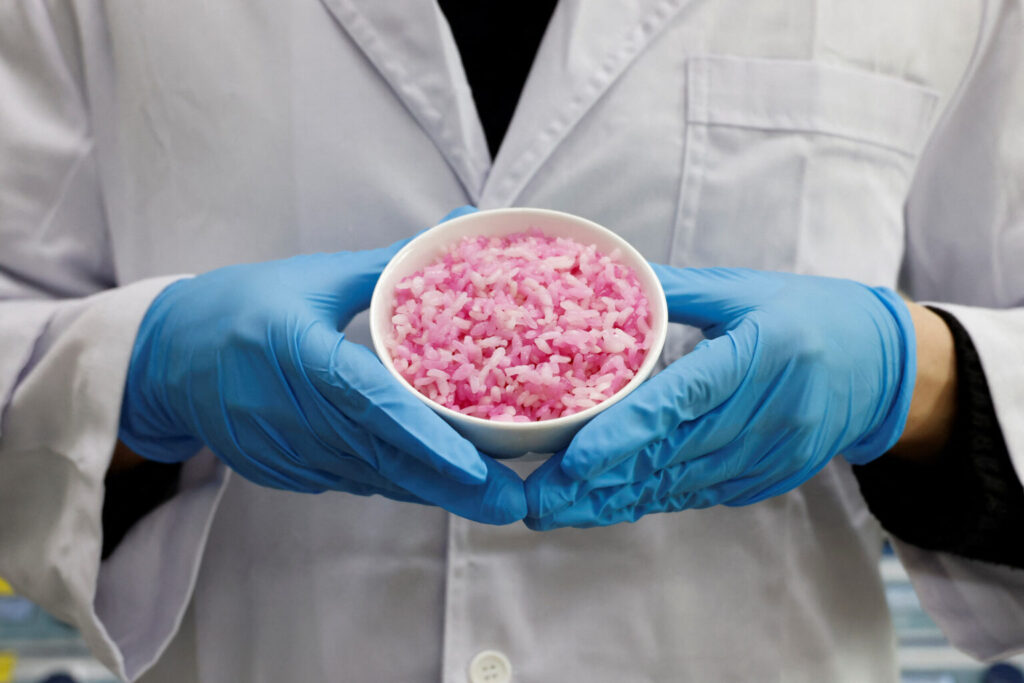South Korea scientists tout ‘beef rice’ as source of protein for the future

A researcher handles a petri dish containing hybrid beef rice, elaborated using cow muscle and fat stem cells, at the laboratory of Yonsei University in Seoul, South Korea, on March 8. —REUTERS
SEOUL (Reuters) – South Korean researchers have grown beef cells in rice grains in what they say is a major step towards achieving a sustainable, affordable and environmentally friendly source of protein that could replace farmed cattle for meat.
Professor Jinkee Hong of Yonsei University in Seoul, who led the research published in the journal Matter this month, said the “beef rice” is the first product of its kind. It uses grain particles as the base for cultivating animal muscle and fat cells.
In the research, rice grains were treated with enzymes to create an optimal environment for cell growth, then infused with bovine cells that are cultivated to achieve the final hybrid product, which resembles a pinkish grain of rice.
The Yonsei team is not the first to work on lab-grown meat products. Companies around the world have launched cultivated meat; one of the latest involves plant-based chicken and eel cultivated from a soy base, marketed in Singapore.
Hong’s team said rice has an advantage in terms of safety relative to soy or nuts because fewer people are allergic to it.
“If successfully developed into food products, cultured beef rice could serve as a sustainable protein source, particularly in environments where traditional livestock farming is impractical,” he said.
The beef rice contains approximately 8% more protein and 7% more fat than conventional rice. Hong noted the protein is 18% animal-based, making it a rich source of essential amino acids.
Priced at about $2 per kilogramme (2.2 lbs) and with a far smaller carbon footprint than traditional beef products, cultured beef rice could compete on grocery shelves, Hong said.
Hong said challenges remain from a technical standpoint and in terms of winning over customers with flavour and texture.
Keum Dong-kyu, who recently sampled the rice beef at a Korean barbecue restaurant in Seoul, said the idea is innovative.
“But honestly, I don’t think it can replicate the juiciness or texture of real beef,” Keum said.
Christian Krammel, who is visiting from Germany, was more positive.
“Now, it does not compare to beef yet, but as I see the research is in early stages, I would say it’s a great way forward,” Krammel said.
READ MORE: Eat protein to improve health and build muscles, not to store extra body fat
Disclaimer: The comments uploaded on this site do not necessarily represent or reflect the views of management and owner of Cebudailynews. We reserve the right to exclude comments that we deem to be inconsistent with our editorial standards.
